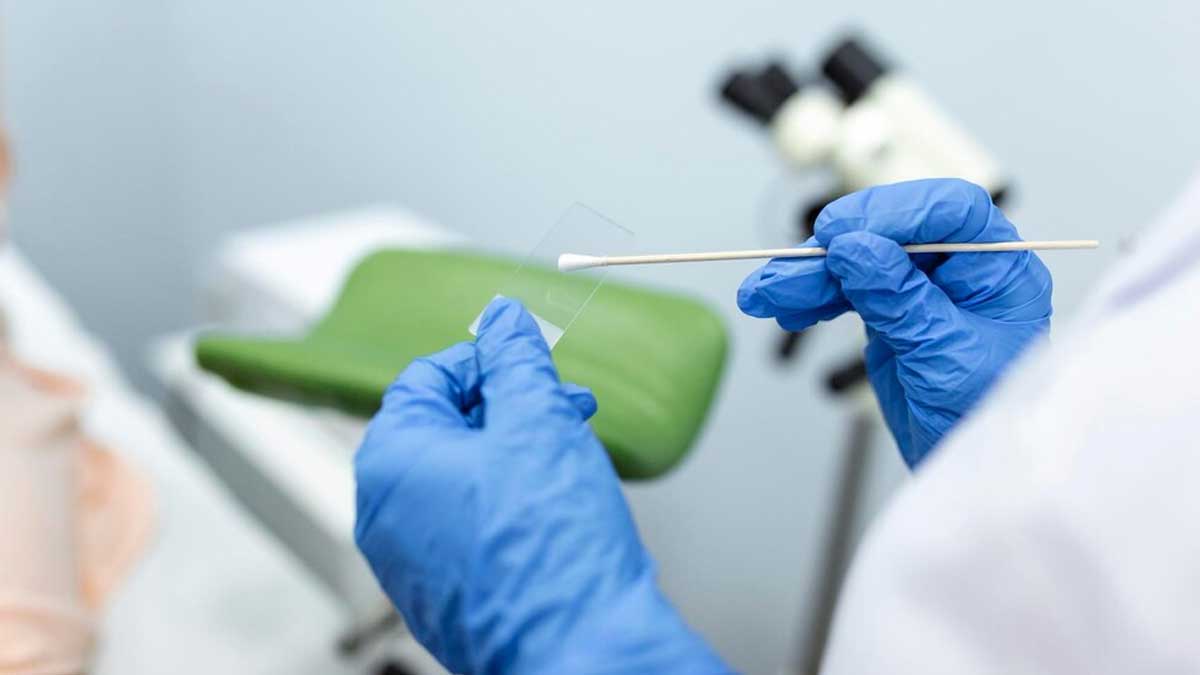
Former Miss World contestant Sherika De Armas dies at 26 after battling with cervical cancer for two years. She had undergone chemotherapy and radiotherapy during her treatment. De Armas, who was one of the six contestants who was only 18, had represented Uruguay in the Miss World Pageant in 2015. There has been a rising trend in the number of cervical cancers worldwide, with the World Health Organization (WHO) stating it as the fourth most common cancer globally.
Table of Content:-
To understand and raise awareness of cervical cancer, we spoke to our expert Dr Astha Dayal, Lead Consultant, Obstetrician and Gynaecologist, CK Birla Hospital, Gurugram, who explained this cancer and how you can diagnose and prevent it.

Cervical cancer arises from the abnormal growth of cells in the cervix, the lower part of the uterus that links to the vagina. According to the findings of the Annals of Medical and Health Sciences Research, it accounts for 23.3% of all cancer deaths in India, making it one of the main causes of mortality for females.
Symptoms Of Cervical Cancer

Dr Dayal said that cervical cancer may not show any symptoms in its early stages. However, it starts to exhibit symptoms once it progresses. Dr Dayal listed the symptoms as follows:
- Abnormal vaginal bleeding-bleeding in between periods
- Bleeding after sex or bleeding after menopause
- Pain in the lower abdomen
- Pain during intercourse
- Pain during urination
- Foul-smelling discharge, which may be blood-stained
Also Read: Worried If Cervical Cancer Can Lead To Infertility? Here's What Expert Has To Say
Causes Of Cervical Cancer
Dr Dayal said, “The most common reason for cervical cancer is persistent infection with high-risk types of Human Papillomavirus (HPV), especially HPV types 16 and 18.”
She added, “HPV is a common sexually transmitted infection and 80% of sexually active couples will be exposed to HPV once in their lifetime. But usually, our immunity fights it and it is removed. However, persistent or repeated infections with high-risk HPV can cause cancer.”
Risk Factors For Cervical Cancer

Dr Dayal listed the risk factors for cervical cancer as follows:
- Smoking
- Women who have weak immune systems, such as those with HIV/AIDS
- Women having multiple sexual partners or having sexual partners who have had partners, or at an early age becoming sexually active.
Dr Dayal added, “In India, poor hygiene, early marriage, multiple childbirths, and lack of awareness about cervical cancer and preventive measures also contribute to its high mortality.” According to WHO, women who have HIV are six times more prone to cervical cancer compared to women who do not have HIV. Also, cervical cancer takes 15-20 years to develop in women with healthy immune systems. However, in women with compromised immune systems, such as those with untreated HIV infection, it can happen in just 5-10 years.
Also Read: How EMRs Can Help In Early Detection And Treatment Of Cervical Cancer, Doctor Explains
Diagnosing Cervical Cancer

Dr Dayal said, “Cervical cancer can occur at any age, but it is most frequently diagnosed in women between the ages of 30-60.”
She added, “Cervical cancer can be detected at a very early stage by regular screening (Pap smears or HPV testing) every three years. It is recommended for women starting around the age of 21, or when they become sexually active.”
She also said, “Mortality rates have been decreasing in high-income countries due to effective screening programs. However, it is prevalent in India, especially in rural areas that lack awareness about the vaccine and pap smear.”
Preventing Cervical Cancer
Cervical cancer can be prevented by HPV vaccination. Dr Dayal said, “HPV vaccination is recommended for adolescents, typically starting at ages 11-12. The vaccine is most effective when taken before sexual activity begins.” According to a study published in the National Cancer Institute, the vaccine lowered the prevalence of cervical cancer in girls by 90% before the age of 17.
[Disclaimer: The information in this article is shared by a registered healthcare professional and is for informational purposes only. Hence, we advise you to consult your expert if you notice any symptoms to avoid complications later.]
Also watch this video
How we keep this article up to date:
We work with experts and keep a close eye on the latest in health and wellness. Whenever there is a new research or helpful information, we update our articles with accurate and useful advice.
Current Version
